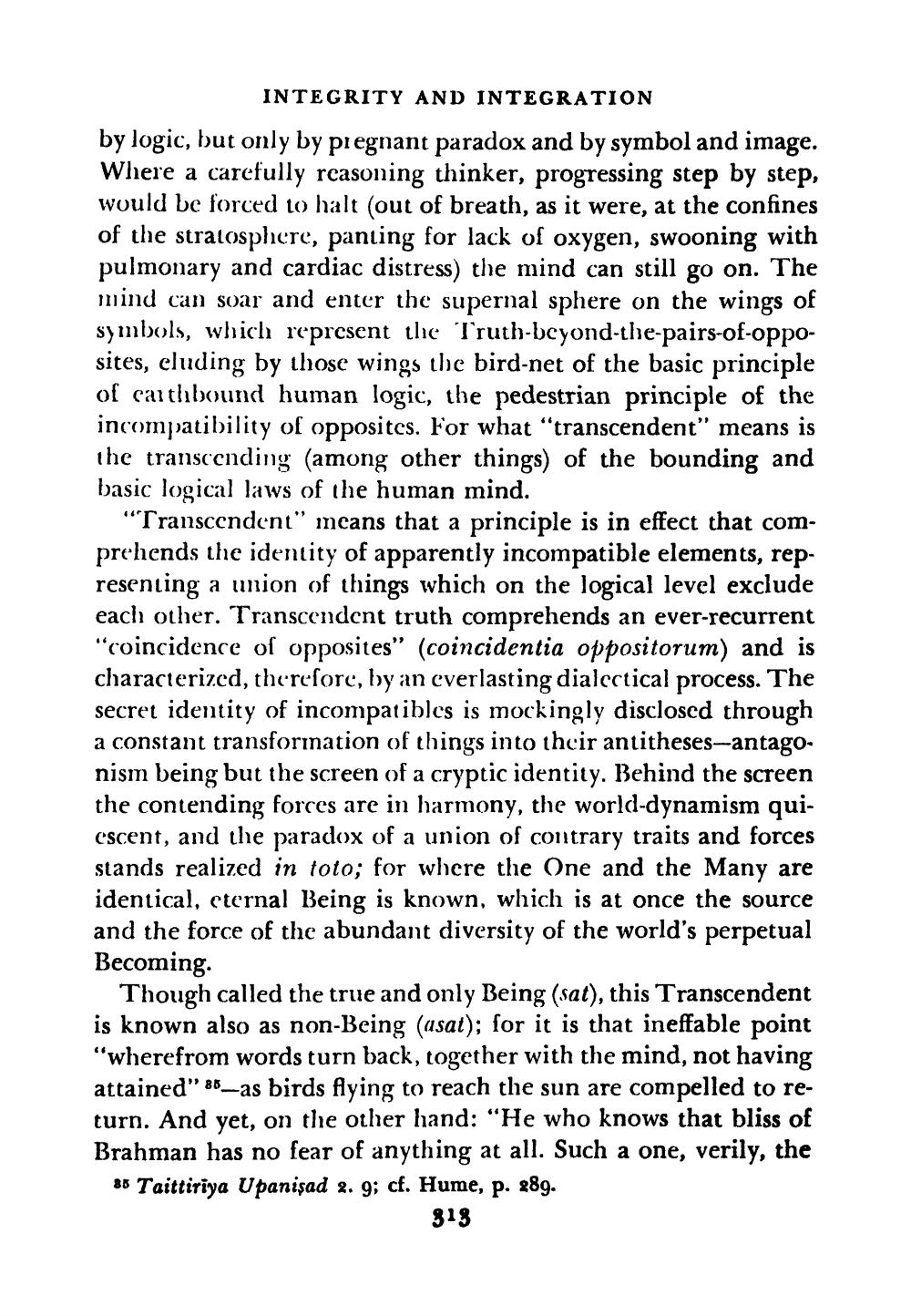________________
INTEGRITY AND INTEGRATION by logic, but only by pregnant paradox and by symbol and image. Where a carefully rcasoning thinker, progressing step by step, would be forced to halt (out of breath, as it were, at the confines of the stratosphere, panting for lack of oxygen, swooning with pulmonary and cardiac distress) the mind can still go on. The mind can soar and enter the supernal sphere on the wings of symbols, which represent the Truth-bcyond-the-pairs-of-opposites, eluding by those wings the bird-net of the basic principle of carthbound human logic, the pedestrian principle of the incompatibility of opposites. For what "transcendent” means is the transcending among other things) of the bounding and basic logical laws of the human mind.
“Transcendent" means that a principle is in effect that comprehends the identity of apparently incompatible elements, representing a union of things which on the logical level exclude each other. Transcendent truth comprehends an ever-recurrent "coincidence of opposites” (coincidentia oppositorum) and is characterized, therefore, by an everlasting dialectical process. The secret identity of incompatibles is mockingly disclosed through a constant transformation of things into their antitheses-antagonism being but the screen of a cryptic identity. Behind the screen the contending forces are in harmony, the world-dynamism quiescent, and the paradox of a union of contrary traits and forces stands realized in toto; for where the One and the Many are identical, eternal Being is known, which is at once the source and the force of the abundant diversity of the world's perpetual Becoming
Though called the true and only Being (sat), this Transcendent is known also as non-Being (asal); for it is that ineffable point "wherefrom words turn back, together with the mind, not having attained" 86—as birds flying to reach the sun are compelled to return. And yet, on the other hand: "He who knows that bliss of Brahman has no fear of anything at all. Such a one, verily, the
85 Taittiriya Upanisad 2. g; cf. Hume, p. 289.




